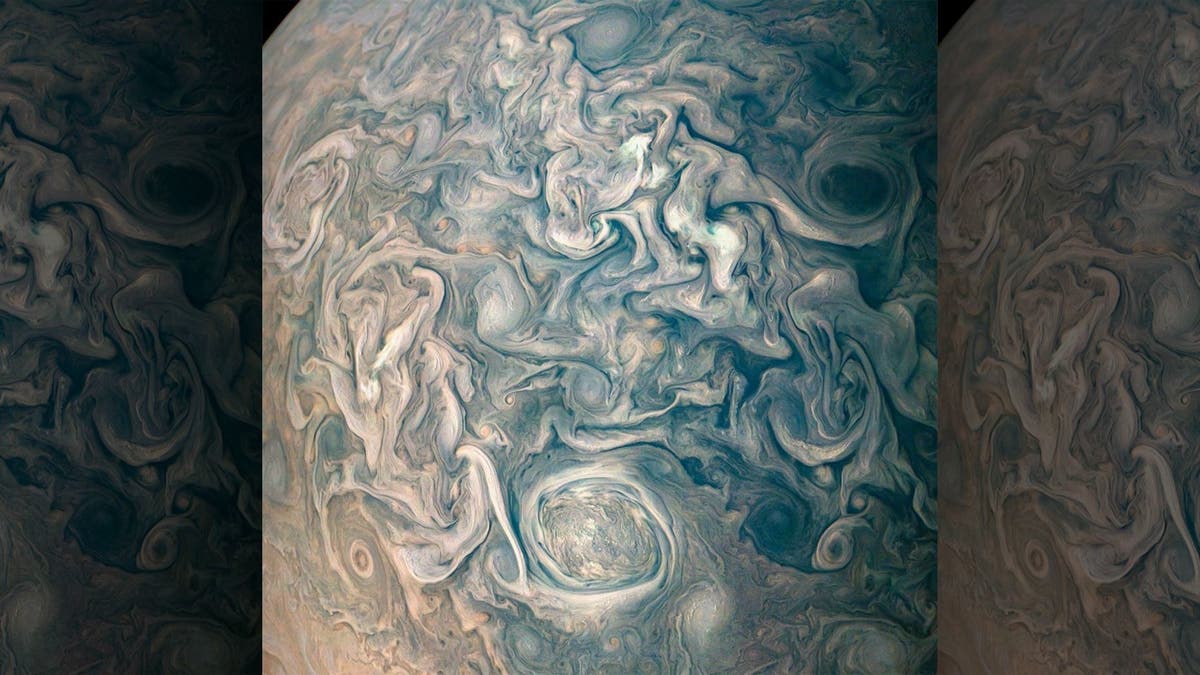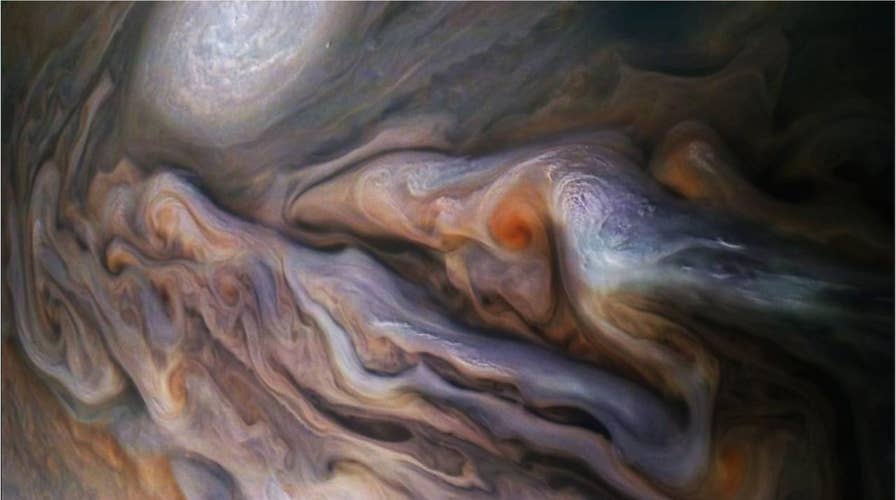Mysterious 'creature' spotted in Jupiter's clouds stuns NASA
NASA Jet Propulsion Laboratory recently revealed a new, stunning image from its Juno spacecraft, which is currently circling the giant planet.
Space enthusiasts have spotted what they claim is a mythical "creature" hidden in the swirls of Jupiter's cloud system.
NASA Jet Propulsion Laboratory recently revealed a new, stunning image from its Juno spacecraft, which is currently circling the giant planet. The photo was snapped around 5 p.m. ET on Oct. 29 as the spacecraft made its 16th close flyby around Jupiter, according to a recent news release. At that time, Juno was just 4,400 miles from the floating clouds.
"A Dragon’s Eye? What do you see within the swirling clouds of Jupiter?" the NASA lab asked on Twitter.
IMAGES OF JUPITER BY NASA'S JUNO SPACECRAFT
The question prompted a flurry of responses — with many allowing their imaginations to wander.
"I see a Squid," one Twitter user replied.
"Quetzalcoatl!" another guessed, referring to an ancient term that translates to "feathered serpent" or "flying reptile."
"Dragon!!!" one man declared, outlining the picture with colors to form the face of the legendary creature.
The colorful image from Juno's camera was enhanced by scientists Gerald Eichstädt and Seán Dora.
"A multitude of magnificent, swirling clouds in Jupiter's dynamic North North Temperate Belt is captured in this image from NASA's Juno spacecraft. Appearing in the scene are several bright-white “pop-up” clouds as well as an anticyclonic storm, known as a white oval," NASA explains in an online statement.
STUNNING NASA IMAGE REVEALS JUPITER'S BEAUTY IN ULTRAVIOLET AND INFRARED LIGHT
NASA's Juno spacecraft was launched on Aug. 5, 2011, and arrived at Jupiter five years later — in July 2016. Juno's mission is slated to come to a close in July 2021 after the spacecraft slowly orbits Jupiter, collecting important data along the way.
"Juno's principal goal is to understand the origin and evolution of Jupiter. Underneath its dense cloud cover, Jupiter safeguards secrets to the fundamental processes and conditions that governed our solar system during its formation. As our primary example of a giant planet, Jupiter can also provide critical knowledge for understanding the planetary systems being discovered around other stars," NASA describes on its website.
As the spacecraft explores the fifth planet from the Sun, it has taken some impressive pictures along the way.

The astonishing images come courtesy of the Juno spacecraft during its 13th close flyby of Jupiter. (NASA/JPL-Caltech/SwRI/MSSS/Gerald Eichstädt /Seán Doran)
One recent photo of Jupiter's northern hemisphere has been compared to Vincent van Gogh's iconic painting, "The Starry Night."
"The region seen here is somewhat chaotic and turbulent, given the various swirling cloud formations," NASA said in a June 25 blog post. "In general, the darker cloud material is deeper in Jupiter’s atmosphere, while bright cloud material is high. The bright clouds are most likely ammonia or ammonia and water, mixed with a sprinkling of unknown chemical ingredients."
Fox News' Chris Ciaccia contributed to this report.









































